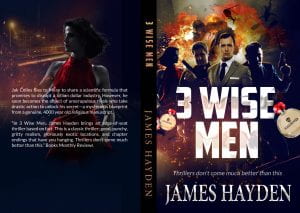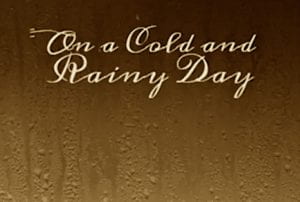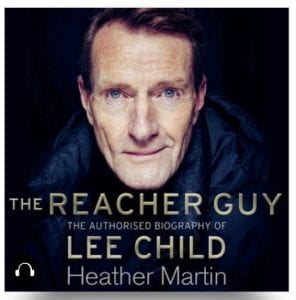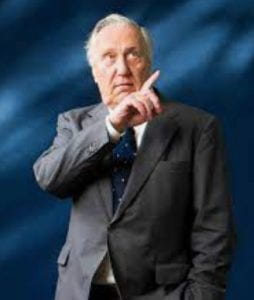First, let’s back up. My writing took rough shape when I won a writing contest at age 12, It was a short story about my cat, called Mog and it won me a year’s pass to our local movie theatre and a little publicity in our local paper. I don’t remember all the details, but the movie pass was wonderful, and opened my eyes to cinema, stories and characters. My next claim to fame was a high school textbook, co-authored and well received with several reprints. I wrote my first novel – 3 WISE MEN – following an idea about the power of perfume and the details fell into place after a trip my wife and I took to Europe. I self published and was able to revise and improve over several months. So, what did I learn from writing this first novel:
Start you second novel as soon as possible as it will always be better
I guess I need to qualify what “better” means. It can be summed up this way; a second novel will most likely have more nuanced themes and a more interesting/complex plot with improved conflict, characters with depth, and be a more fulfilling story for your readers. I can remember being quite angry at the thought that “your first book is always your worst’ but, in some ways, it is. In my case, I made several re-writes of 3 WISE MEN that improved it. However, even after several great reviews, I agree that first books are lacking the quality of subsequent ones. My second manuscript was built on the lessons of the first and, by this stage, I had a greater sense of my personal writing style. Yes, my first novel was not bad at all (based on reader feedback), but my second has a quality that I know is better, even before an editor gets his or her scissors to it.
 I have just released a revised edition of 3 WISE MEN. No big changes, just a tidy top of some text and grammar to make a more polished read. And a name change for a lead character. Check it out at Amazon. The Kindle version is here.
I have just released a revised edition of 3 WISE MEN. No big changes, just a tidy top of some text and grammar to make a more polished read. And a name change for a lead character. Check it out at Amazon. The Kindle version is here.
 What’s in a name? Everything. A few years ago a Chinese friend of mine rang to ask if New Zealand baby names had meanings. “Of course,” I said. He next asked, “What name means mistake?”
What’s in a name? Everything. A few years ago a Chinese friend of mine rang to ask if New Zealand baby names had meanings. “Of course,” I said. He next asked, “What name means mistake?”
 What to do on a cold and rainy day? I could finish painting the spare bedroom, but the weather is damp and the paint won’t dry very well. I could take my wife out for a coffee, but she is ill and resting. I could keep editing my new book—or, rather, what I call fine-editing since the major editing is finished. No, I need a new inspiration. So, I decide to work on my first book; produce a new cover, revise the first chapter and update the About the Author page. My goal is to have this done in three days. Meanwhile, my darling publisher Amazon have changed their Kindle format from .mobi to .pub, so that requires more work :-). The next day, I have a head cold and don’t feel like doing much at all. But, the weather is warmer and the painting is almost finished. I’m praying for a better week ahead and a new-look to the bedroom as well as my first book. More news to follow if all goes well. {PS: good progress on both the bedroom renovation and book revisions. The text changes are done and have been uploaded to Amazon. Now I am working with my illustrator with final touches to the cover. All will be revealed soon}
What to do on a cold and rainy day? I could finish painting the spare bedroom, but the weather is damp and the paint won’t dry very well. I could take my wife out for a coffee, but she is ill and resting. I could keep editing my new book—or, rather, what I call fine-editing since the major editing is finished. No, I need a new inspiration. So, I decide to work on my first book; produce a new cover, revise the first chapter and update the About the Author page. My goal is to have this done in three days. Meanwhile, my darling publisher Amazon have changed their Kindle format from .mobi to .pub, so that requires more work :-). The next day, I have a head cold and don’t feel like doing much at all. But, the weather is warmer and the painting is almost finished. I’m praying for a better week ahead and a new-look to the bedroom as well as my first book. More news to follow if all goes well. {PS: good progress on both the bedroom renovation and book revisions. The text changes are done and have been uploaded to Amazon. Now I am working with my illustrator with final touches to the cover. All will be revealed soon} Author Lee Child has published 25 thrillers, featuring Jack Reacher, which have sold more than 100 million copies worldwide.So when he says The Day Of The Jackal is “a year-zero, game-changing thriller, one of the most significant of all time” you listen.
Author Lee Child has published 25 thrillers, featuring Jack Reacher, which have sold more than 100 million copies worldwide.So when he says The Day Of The Jackal is “a year-zero, game-changing thriller, one of the most significant of all time” you listen. set in 1963, about an Englishman hired to assassinate the French president at the time, Charles de Gaulle. But publishers were not interested. After all de Gaulle was very much alive, the mission had obviously failed, so where was the suspense? That, says Child, is the key to its success.
set in 1963, about an Englishman hired to assassinate the French president at the time, Charles de Gaulle. But publishers were not interested. After all de Gaulle was very much alive, the mission had obviously failed, so where was the suspense? That, says Child, is the key to its success. Another dilemma—what to do with unwanted or unnecessary characters. The best idea is to let them go, but do it in such a way that it provides more tension for the main character(s). In my first thriller, the main character – Jack Colins – is chased by a woman who attempts to discover his secret. She sits next to him on a train ride to Milan and hounds her way into his life to the point of being more than annoying. At a crucial moment, Jack discovers her body in an ante-room in a small church and it’s not a pretty scene. But, her demise piles more pressure on Jack and he is forced to flee to safety in an e-type Jaguar, aided by his sister. Unfortunately, she also becomes an ‘unnecessary character’ and …. no more spoilers. But, if you really want to find out what happens to my unwanted characters, why not
Another dilemma—what to do with unwanted or unnecessary characters. The best idea is to let them go, but do it in such a way that it provides more tension for the main character(s). In my first thriller, the main character – Jack Colins – is chased by a woman who attempts to discover his secret. She sits next to him on a train ride to Milan and hounds her way into his life to the point of being more than annoying. At a crucial moment, Jack discovers her body in an ante-room in a small church and it’s not a pretty scene. But, her demise piles more pressure on Jack and he is forced to flee to safety in an e-type Jaguar, aided by his sister. Unfortunately, she also becomes an ‘unnecessary character’ and …. no more spoilers. But, if you really want to find out what happens to my unwanted characters, why not 